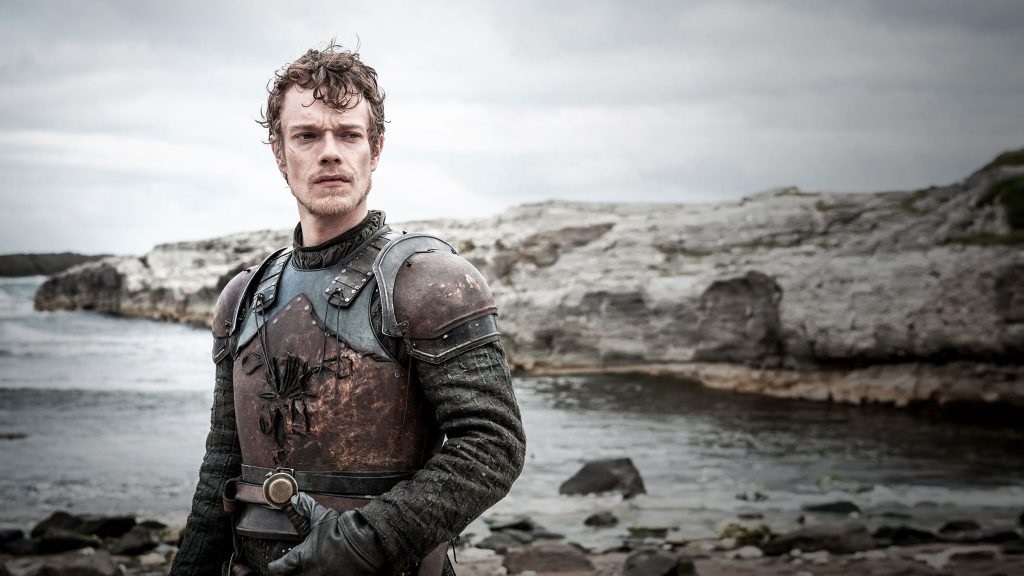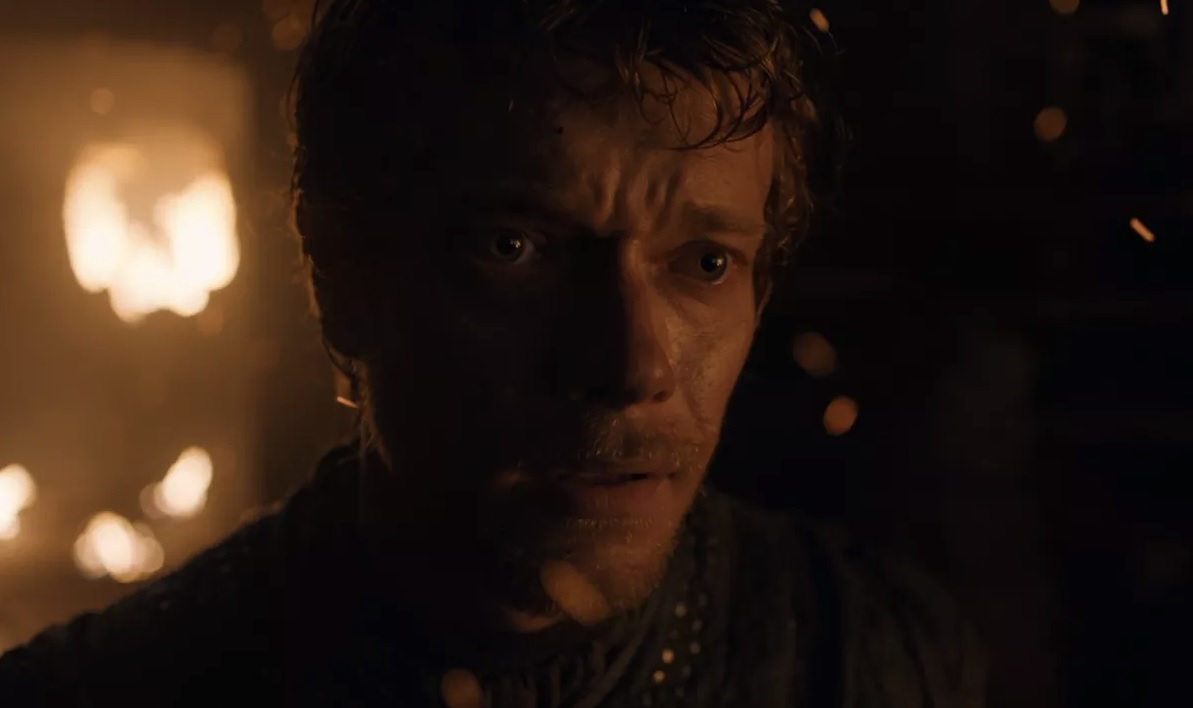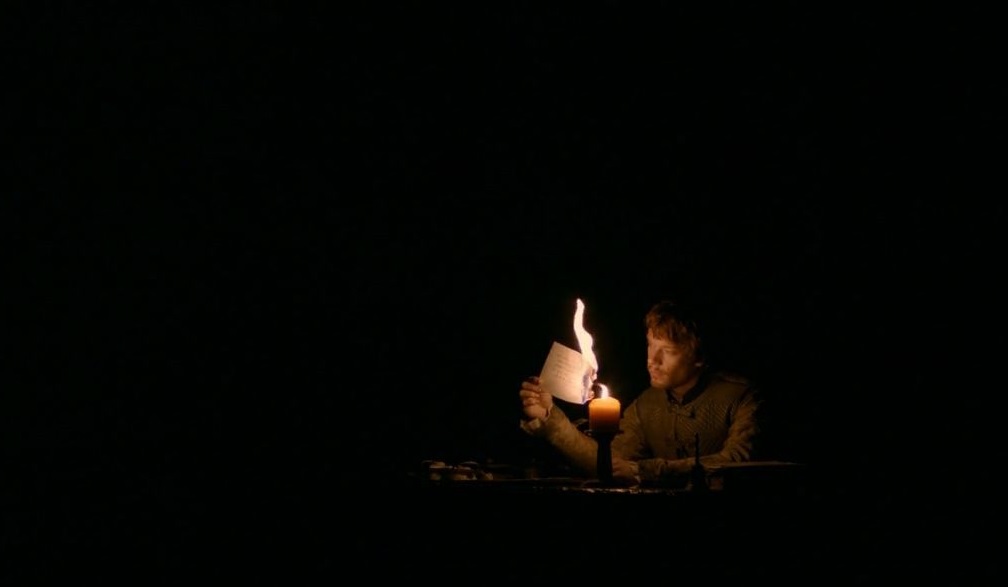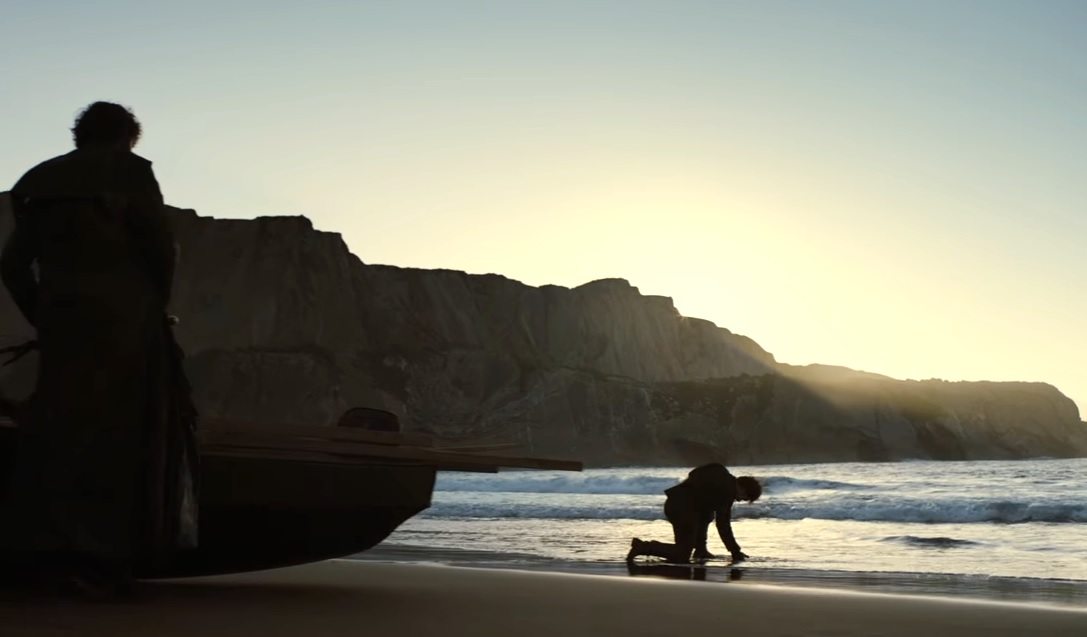Never forget what you are. The rest of the world will not. Wear it like armor, and it can never be used to hurt you.
Identity means everything in societies that encompass our world, and the societies within the traumatic realm of Game Of Thrones are no different. Identities are what societies use to define and categorize you, regardless of how that identity may actually reflect who you are as an individual. They are what societies use to marginalize you, exploiting a pervasive hierarchical mindset to limit who you can become in case you dare to push back against how your identity is being perceived and used as a weapon against you. On an individual level, for many of us the question of who we truly are is a question that arguably is never truly answered. We just try to get as close to that answer as we possibly can. Some of us are extremely confident about who we are, what we are, and what we are trying to achieve. Others find themselves entrapped on the opposite end while arguably most individuals are somewhere along that spectrum, comfortable in some aspects of their identities while grappling with others.
The role of society in crafting an individual’s sense of identity cannot be underestimated. There is a darkly comedic poetry to Tyrion (Peter Dinklage) uttering the above line to Jon Snow (Kit Harington) in particular considering the slowly unraveling mystery of his parentage, but there is nevertheless a significantly poignant note in the wisdom he is trying to impart in that moment. Jon is who he is, which seems a statement so simplistic that it defies logic to treat it as a profound understanding. Yet identities are complex beasts. Jon may not realize who he is a person (and no, that is not a question specifically relating to his royal lineage), but society has already decided how they will treat him based on his identity as a bastard.
Societies have distinct expectations and understandings of whom individuals are and what their respective places ought to be. In a feudal hierarchical society such as Westeros, this is reinforced on several fronts. Jon is a bastard and there are certain expectation of who he must be and what he must be allowed to achieve. Tyrion is a dwarf and as he so wryly noted, all dwarves were bastards in their father’s eyes. He really was not a “man” in the traditional sense of the word for he was not his brother Jaime (Nikolaj Coster-Waldau), who has the warrior’s broad shoulders and the machismo gravitas of leading a house. For Theon Greyjoy (Alfie Allen), he was a fish out at sea whose identity was starkly divided between two families who had distinct ideas of what masculine identities looked like.
Theon is the youngest son of Lord Balon Greyjoy (Patrick Malahide) and Lady Alannys Greyjoy. When he was still a young child, the Iron Islands rose up in open rebellion against the crown, a rebellion that was crushed along with Balon’s hopes of a male heir inheriting his position. He surrendered, but his position was kept intact on the condition that he would surrender his young son Theon to become a ward of Eddard Stark (Sean Bean).
Theon was raised well but throughout this adolescence and into his adulthood, he was never able to shake off that clinging idea that he was stuck between Winterfell and Pyke without the ability to truly place his feet within one home or another.
When Robb Stark (Richard Madden) sharply reminds Theon that he is not a Stark (“A Golden Crown”), that feeling of him being pulled apart at a juxtaposition of identity simply grows stronger. It explains some of his more derisive behavior as an attempt to define his own individuality, but is of course not a justification for some of his more lurid attempts at doing so. When a group of wildlings takes Bran Stark (Isaac Hempstead-Wright) hostage in a forest, Theon without a moment’s hesitation takes aim and shoots one of the wildlings dead. Robb is angry that Theon might have killed Bran by mistake, but Theon counters with an accusation that Robb was too hesitant to do what had to be done. In the Iron Islands, he contends, one does not become a man until one kills his first man.
When Eddard Stark beheads Will (Bronson Webb) for deserting the Night’s Watch, he does so on account of honor and justice for the man who delivers the sentence ought to swing the sword. Will had broken a sacred oath and he had to be punished for making that decision. Eddard did not enjoy killing and while the Hound (Rory McCann) takes umbrage with that sentiment, it provides a critical crux to the identity crisis Theon grappled with. While killing your first man on the Iron Islands was a badge of masculine strength, for Eddard and the values he tried to impart upon his children, it was a mark of somber responsibility. Masculinity was still unfortunately seen as a test of strength, but it was tied to the moral stamina of not taking a life simply because one had the ability to swing a sword at some godforsaken neck.
As the War of the Five Kings kicked off in a bloody fashion, Theon was sent to the Iron Islands in order to forge an alliance between the Starks and the Greyjoys. While the memories of their previous conflict were still fresh, it made all the sense in the world to try and repair those wounds with the start of this new conflict. The ships of the Greyjoy armada wouldn’t hurt, either. When Theon arrives on Pyke, he is greeted by his sister Yara (Gemma Whelan) and an unimpressed Balon. Balon treats his son as if he is a pariah, looking upon him with an unearned, self-reflective disgust. The wounds of his life unfolding freshly before him, Theon begins to write a letter to warn Robb that Balon was sending Yara to attack an undefended Deepwood Motte. He gazes quietly in the amber light upon that letter and in a moment that might be his most significant, decides to burn it.
In burning that letter, Theon signifies that his allegiance is shifting towards his own family, the one with whom he notably has a much more thin and fraught relationship with. He decides to take that familial relationship one step further and symbolically decides to take over Winterfell. As Yara later points out, the plan is strategically idiotic. In terms of his identity crisis, his horrific murders of Ser Rodrik Cassel (Ron Donachie) and two orphan boys pushes him into one of the series’s darkest corners, which is saying something. His transformation into Theon Greyjoy is seemingly complete and for the briefest of moments he feels a glory that he may no longer have to be reminded how lucky he was to have been a prisoner of the Starks. Then one of his men lands a blow to the back of his head and Theon’s identity crisis takes an even darker turn.
The writing for Theon’s arc was the weakest in the consistent torture porn sequences of season three, but what the writing in that season’s arc did manage to accomplish overall was his complete breakdown into Reek. The castration scene in “The Bear and the Maiden Fair,” a display of gratuity the show is guilty of dipping into more often than necessary, is nevertheless critical in that it shifts not just Theon’s opinion of himself but also the opinion of others who become aware of his castration. Theon is lost after that physical mutilation and his only semblance of certainty with his identity, his traditionally sexual masculinity, is taken away from him.
The masculine aspect of identity is critical to Theon’s struggle in Game Of Thrones. A heteronormative, patriarchal realm, Westeros is the kindest to the wealthy man who stumbles with the bravado of the swords he carries on his armor and within it. As Jaime’s hand was integral to his identity, Theon’s penis was to his. Theon was unable to assert himself as a warrior as he fell short of the prowess Jon and Robb displayed. He was unable to assert himself as a Stark man of honor, for the embodiment of that honor, Eddard, was also the man representing his status as a ward. So Theon aggressively asserts his identity as a man through sex until Ramsay Bolton (Iwan Rheon) takes that particular instrument away from him.
He languishes as a prisoner at the Dreadfort until one night Yara arrives with her Ironborn crew to rescue him. However, she finds a prisoner who is no longer mentally her brother and she turns back after a fight. Reek betrays his fellow Ironborn at Moat Cailin and then finds, to his horror, Sansa Stark (Sophie Turner) at Winterfell. He partially breaks out of his shell to find himself at the precipice of a Winterfell wall with Sansa before they make that fateful plunge, but his fate was far from being sealed at that juncture.
Upon his return to Yara, Reek began to transform more deeply with Yara and as Theon stood by her side when she brokered a pact with Daenerys Targaryen (Emilia Clarke). Yet Euron (Pilou Asbæk), a man whose entire bravado seems to be brimming with ideas about how to embody toxic masculinity, attacks the two of them as they’re en route to Sunspears and takes Yara prisoner. Theon’s PTSD in relation to Reek comes back in full force and he finds an escape in the frigid waters.
In “The Dragon and the Wolf,” Theon profusely apologizes to Jon for his actions, apologies that may not be enough or entirely earned but that nevertheless needed to be made. He confesses that his crimes were in part caused by him not knowing whether he was a Greyjoy or a Stark and where his entire identity as an individual stood. Jon brusquely makes critical notes of Theon’s confession but is able to forgive for what he is able and has a right to. Most importantly he notes that Theon doesn’t need to pick one aspect of his identity to define him as a whole. He is both a Greyjoy and a Stark and he need to move forward in life with that critical understanding intact. His identity may not be what he believed it to be or at certain junctures needed it to be, but that is in many ways irrelevant.
That provides Theon with a bit of galvanizing fire as he takes on a loud-mouth boorish Ironborn in a trial by physical combat. Each time Theon is knocked down by his opponent, he gets right back up. Time and time again he hears yells that if he rises up one more time, he will be killed. Yet time and time again, Theon rises right back up, for Yara’s life possibly depends upon it. It’s what he has left and he’s not going to let it go. In a moment of dramatic poetry, his opponent tries to use groin pain to bring Theon down, but with nothing there, he is able to turn the tables around and win the respect of the Ironborn around him.
In a stunning shot, Theon collapses in exhaustion upon his knees and lifts the salt water with which to clean his tattered visage. In that moment, it becomes clear that Theon has come to a sort of peace with his identity and is going to charge forth to rescue the only person who was there for him in his darkest hour of need. He may not ever completely be able to grasp who he is as a person or be able to reconcile his identity and society will never eschew the judgments it places upon his identity. But Theon, perhaps for the first time in his life, has a clear understanding of who he is as a person. At last, he is ready to wear his truest identity as armor and charge forth to whatever future lies across the golden waters of Dragonstone.
The post The Writing On the Wall: Krakens, Wolves, and Broken Beings appeared first on Watchers on the Wall.
Via http://watchersonthewall.com





No comments:
Post a Comment